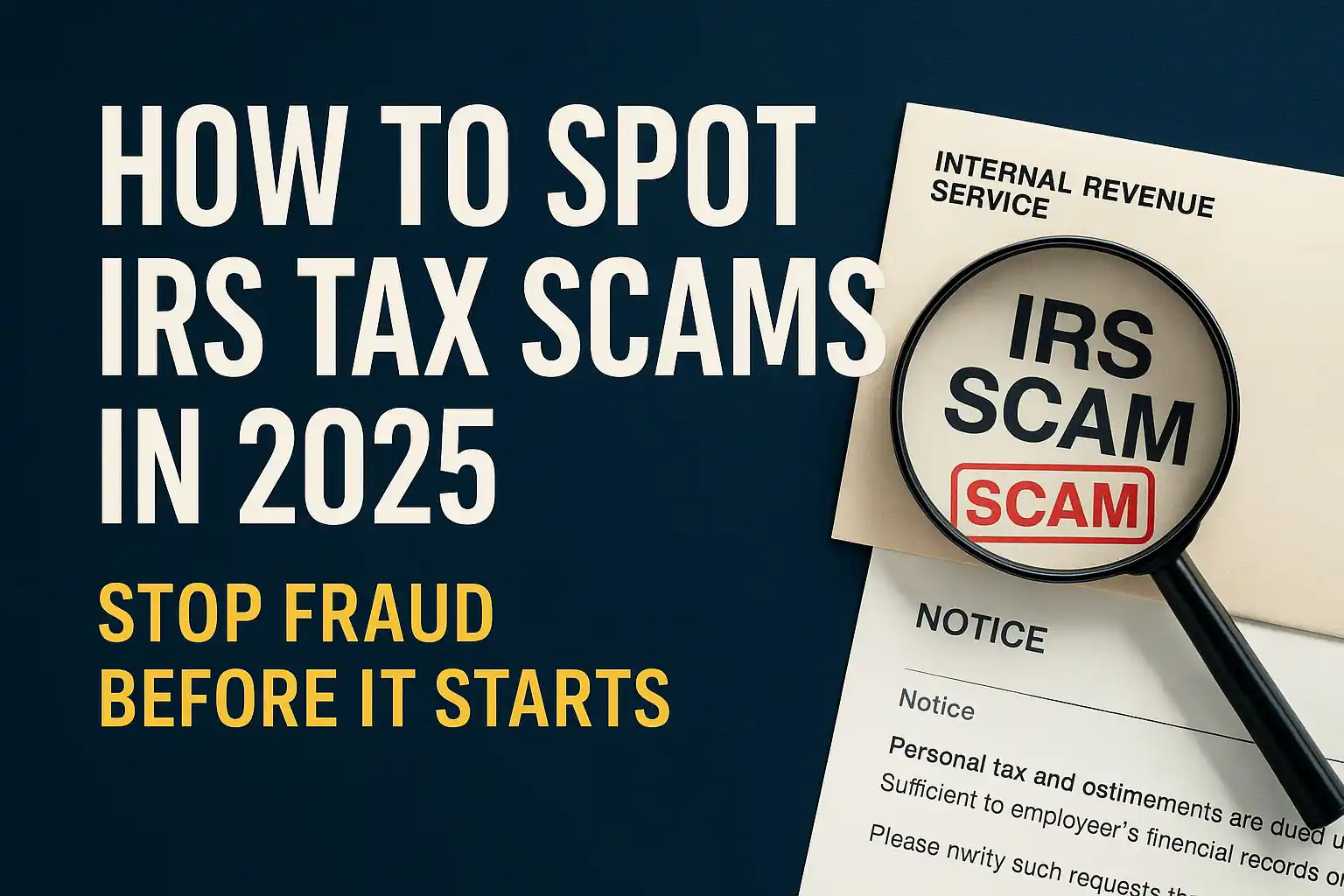Tax Scams Are Getting Smarter — Here’s How to Outsmart Them
Scammers are getting smarter– and their latest tactic is pretending to be the IRS. Taxpayers across the country are being targeted by emails, texts, phone calls, and even social media messages that look official but are far from it. These scams are designed to create panic, push urgency, and trick you into giving up sensitive personal or financial information. Knowing how the IRS does and doesn’t communicate is your best defense.
What the IRS Will Never Do
Stay one step ahead and protect your hard-earned money by first knowing what the IRS will not do:
-
❌ Initiate contact via email, text message, or direct message on social media– These messages often use common baiting tactics, such as warning of an “urgent” tax bill, promising a surprise refund, or claiming you’re eligible for special tax credits or stimulus payments– all designed to convince you to click a fraudulent link that leads to a phishing site.
-
❌ Leave pre-recorded messages– Also known as “robocalls,” these pre-recorded messages often include threats of arrest or other severe consequences if you don’t call back immediately to make a payment or provide personal information.
-
❌ Ask for payment in the form of a pre-paid store card or gift card– These payment methods are preferred by scammers because they are hard to trace and almost impossible to reverse. The IRS accepts payments made directly from your bank account, a debit or credit card, or a mailed check or money order.
Some of these warning signs may seem obvious, but phishing tactics have become so advanced that scammers can now spoof caller ID to make it look like the call is coming directly from the IRS.
What the IRS Will Do
Recognize which communications are really coming from the IRS by understanding what they will do:
-
-
✅ Send official letters and notices– The first way the IRS will contact you will always be by mail. To check a notice’s legitimacy, you can log into your IRS online portal and see if it appears in your file.
-
-
- ✅ Call you directly– Agents may call for something simple like confirming an appointment, but only after they’ve sent you an initial letter– and they certainly won’t call to threaten arrest.
-
- ✅ Have an authorized collection agency call you– Again, this will only happen after you and your representative have received an official notice from the IRS via mail.
How to Protect Yourself From IRS Scams
Scammers can be incredibly convincing– we’ve already seen that. So, if you’re ever unsure whether a message, call, or notice is real, err on the side of caution.
-
- ❌ Don’t click any links.
-
- ❌ Don’t call the number the robocall gave you.
-
- ❌ Don’t walk to the convenience store down the street to buy a gift card.
In time of doubt, go straight to the source:
-
- ✅ Visit IRS.gov to log into your secure account.
-
- ✅ Use their official customer service number to verify any suspicious notice.
-
- ✅ Report phishing or scam attempts to: phishing@irs.gov
If they suspect you’ve been a target of a potential scam, they will direct you on exactly where and how to report it. You might spend a few extra minutes on hold, but it sure beats the hours you’d spend talking to a fraud investigator.
Stay Sharp. Stay Safe. Scammers are evolving, but so is taxpayer awareness.
Stay vigilant, keep your wits about you, and remember– the real IRS doesn’t deal in threats, texts, or gift cards. Protect yourself by staying informed, cautious, and skeptical of any communication that seems suspicious.
One of the best ways to keep pace with evolving scam tactics is by reviewing the IRS’s annual “Dirty Dozen” list of the most common and dangerous tax scams targeting both individuals and businesses. The 2025 list includes schemes like phishing emails, refund scams, social media impersonation, fake tax preparers, and improper Employee Retention Credit claims. Business owners should pay close attention to evolving scams involving spear-phishing attacks, abusive trust arrangements, and shady promoters pushing misleading strategies. Reviewing the IRS’s Dirty Dozen list annually is a smart habit—it provides insight into current fraud trends and helps you protect both your company’s financials and your personal data from becoming a target.
Business Owners: Stay Ahead of Evolving Tax Scams
In today’s digital economy, small businesses are increasingly targeted by sophisticated tax scams. The IRS reminds business owners to stay vigilant year-round—not just during tax season—as scammers grow more deceptive and convincing.
Common Tax Scams Targeting Business Owners
1. IRS Impersonation Calls
Fraudsters may pose as IRS agents, calling to threaten arrest or the suspension of your business license unless you pay immediately. These threats are designed to scare you into compliance, but the IRS will never demand immediate payment or threaten you over the phone.
2. Fake Tax Preparers
Some scammers disguise themselves as professional tax preparers to gain access to your business’s financial records. Before hiring a tax pro, confirm their IRS Preparer Tax Identification Number (PTIN) and check their credentials.
3. W-2 Phishing Attacks
Cybercriminals frequently target business owners and HR departments with emails requesting employee W-2 forms. This is a red flag. Always verify such requests through secure, internal channels before responding.
4. Employee Retention Credit (ERC) Scams
Many small businesses have been misled by third parties promising easy access to ERC funds. In some cases, companies are encouraged to file false claims—potentially leading to IRS penalties. Only rely on qualified professionals and consult the IRS’s official ERC guidelines.
How to Protect Your Business from Scams
Educate Your Team
Train your employees on how to recognize suspicious emails, calls, and messages. Every team member should understand the red flags of phishing and phone scams.
Secure Sensitive Data
Implement robust data protection protocols. Limit access to tax and payroll information to only trusted, authorized personnel.
Verify All IRS Communications
The IRS will always initiate contact via official mail—not email, text, or social media. If you receive a message claiming to be from the IRS, log in to your IRS Online Account or call the agency directly to verify.
Business identity theft is on the rise, and scammers can exploit vulnerabilities in your public filings to impersonate your company. In some cases, they may attempt to change your business registration with the state—altering addresses, ownership details, or officer information—to gain access to financial accounts or sensitive data.
To protect your business:
-
-
➡️ Regularly log in to your state’s business portal and verify that your company’s information—such as registered agent, business address, and officers—has not been tampered with.
-
-
-
➡️ Be cautious about what personal information you include in your public filings. If you’re forming an LLC or updating your business info, consider strategies to hide your home address from the public
-
-
-
➡️ Use proper structuring and privacy tools from the start. Mark breaks this down in his guide on how to protect your personal info when starting an LLC
-
Taking these proactive steps not only reduces your risk of being scammed but also helps maintain professional credibility and operational security.
A Final Word for Business Owners
Tax fraud can cost your company time, money, and reputation. Don’t wait until your data has been compromised to take action. Be proactive, verify all communication, and when in doubt, consult with a trusted CPA or tax attorney who understands small business compliance.









